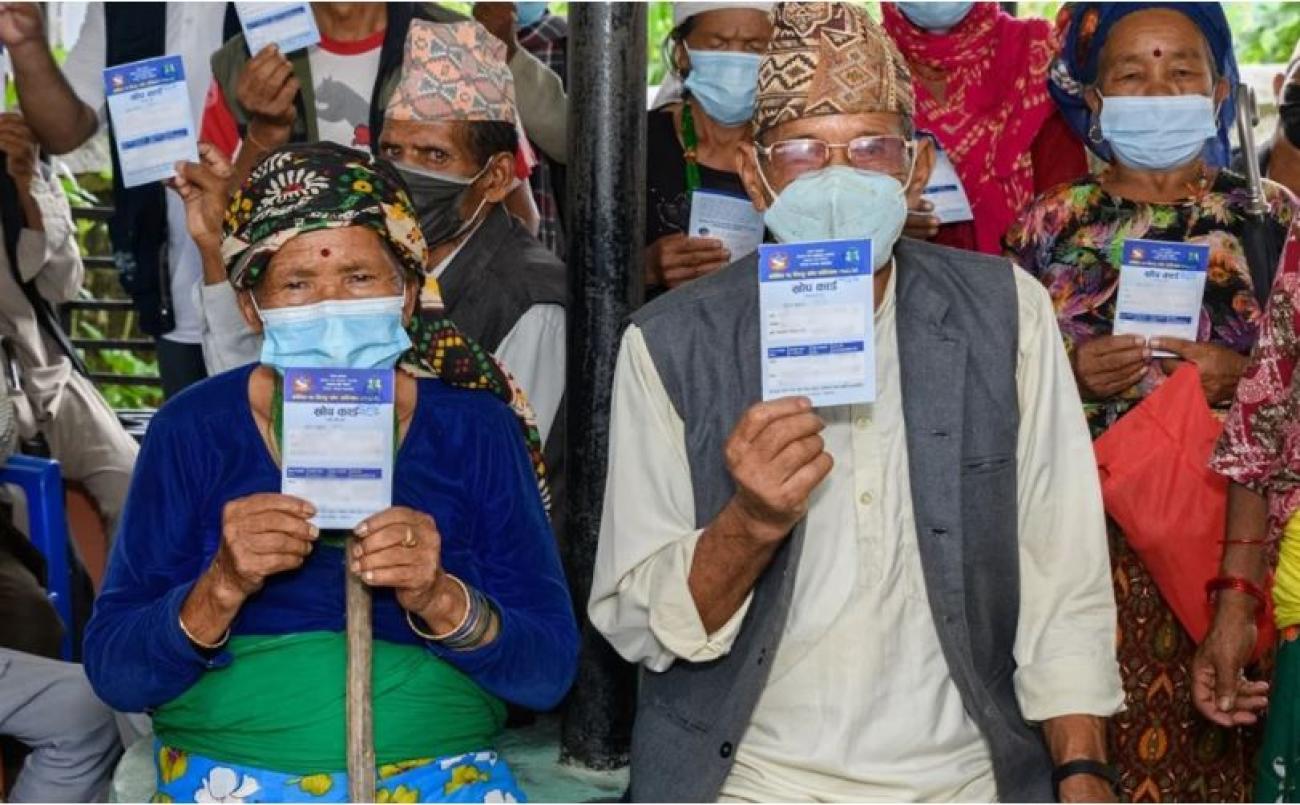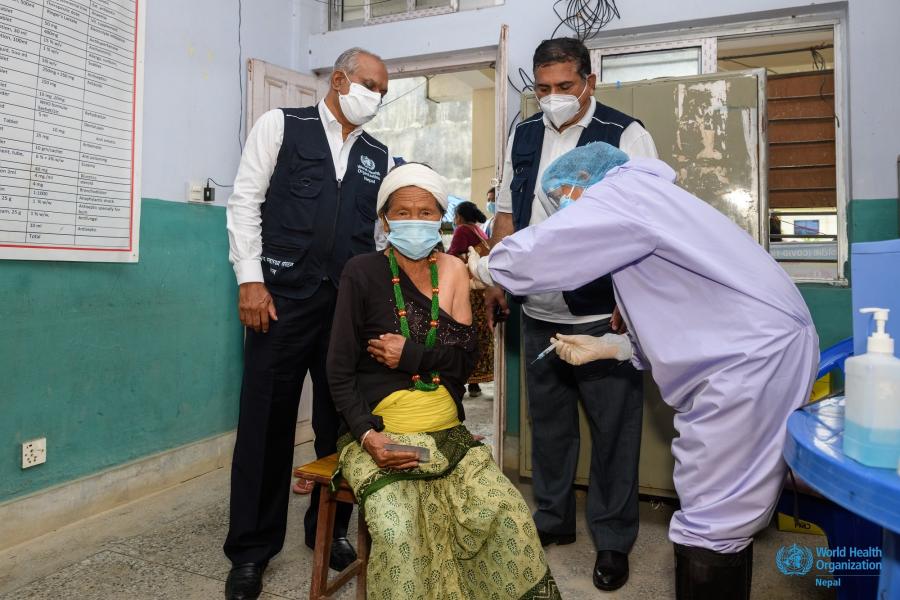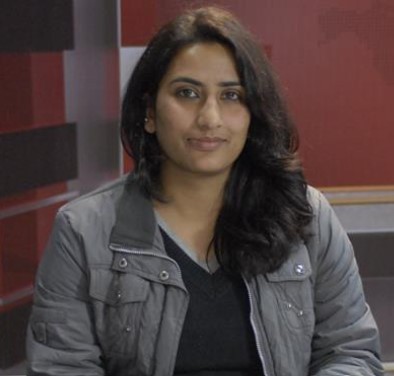Life & Health

Even as the government report suggests Covid numbers in Nepal have receded over the past month, there is a dilemma over whether to walk around wearing a mask or leave it.
The Ministry of Health and Population update suggests a brighter outlook on the Covid situation in the country.
“There is no mass infection and community infection spread,” says the ministry’s latest update on Covid, released on November 27, in a sign of relief to both the government and the public.
“The community has not much been infected, with no Covid patients admitted to hospitals. The data suggests a drop in the number of cases,” said Dr Samir Adhikari, assistant spokesperson at the ministry.
According to the ministry data, among the 526 samples sent for testing – 161 in RT-PCR and 365 in antigen test – on November 26, only one tested positive for the infection.
Similarly, of the 940 samples sent for Covid testing, only four returned positive on November 27. The infection has not exceeded 15 since November 7. There are only 263 active cases of the disease till November 27 in the country.
Health experts, however, advise the public to continue wearing a mask as the risk of the coronavirus persists across the country.
Questioning the government data, Dr Baburam Marasini, a public health expert, said: “We cannot rely on the data as it is city-centric. Only proper research would tell us about the actual condition of Covid across the country.
“Samples from every corner of the country should be collected and tested. It will be too early to avoid masks and unfollow health protocols.”
Dr Marasini has also asked people to take preventive measures to curb the spread of infection despite falling cases.
According to him, there has always been a proportional relationship between the number of cases in India and Nepal. India has been recording about 400 cases per day.

Until and unless the number of infections drops in India, Nepal cannot be assured of its infection spread, Dr Marasini said. “We should be vigilant about the cases in India and people entering the country to prevent the infection from spreading here.”
On Sunday, doctors at the Dhulikhel Hospital confirmed the detection of BA.1.1.3 subvariant of the Omicron coronavirus variant.
The hospital recently detected the highly contagious subvariant, along with BA.2.75.1, BA.2.75.2 and BA.2.75.3, during genome sequencing of the swab samples of nine Covid-infected people.
“Detection of a new-sub variant of the Omicron variant suggests the coronavirus is not only circulating in communities but also mutating continuously,” Dr Rajiv Shrestha, an infectious disease expert at the Dhulikhel Hospital, told The Kathmandu Post.
Despite the risk of the spread of the coronavirus, the Health Ministry has not encouraged people to take an additional vaccine against coronavirus infection.
Over the past few months, Nepal has built up significant immunity among the population through vaccination and infection, maintains the ministry.
Dr Adhikari said: “We have comparatively been in a safer zone because a larger population has been vaccinated.”
According to the ministry, 79.5 per cent of the population have received the first and second doses of the vaccine, while 76.5 per cent have taken a full dose of the vaccine until November 27.
Vaccination has been proven to be the only way to prevent the infection's severity and death. However, only 26.8 per cent have taken an additional dose of the vaccine.
Dr Adhikari said: “The reason for fewer people taking an additional shot is because they feel taking two doses is sufficient and the incidences of the infection have lessened. Also, we didn’t vaccinate people in mass vaccination campaigns like we did for the first and second shots.”
Nepal had received 61,776,770 doses of Covid vaccines, including paediatric doses, of AstraZeneca, Vero Cell, Sinovac-CoronaVac, Moderna, Janssen, Pfizer-BioTech brands.
However, that does not mean Covid is now going to leave us in peace, other experts say.
“Our immunity against infection is temporary,” Dr Marasini warned, calling on the government to ramp up booster jabs.
“The government must encourage people to get their booster jabs,” Dr Marasini said. He also asked people not to abandon safety protocols – maintaining physical distance, hand hygiene, covering their sneezes and coughs, staying home when sick, and avoiding crowded spaces – that have been promoted for the last two years.
“There is always a risk of future outbreaks,” he added.
The Corona-related death tally has reached 12,019 since the first infection was detected in the country in January 2020.

_11zon1681280198.jpg)




